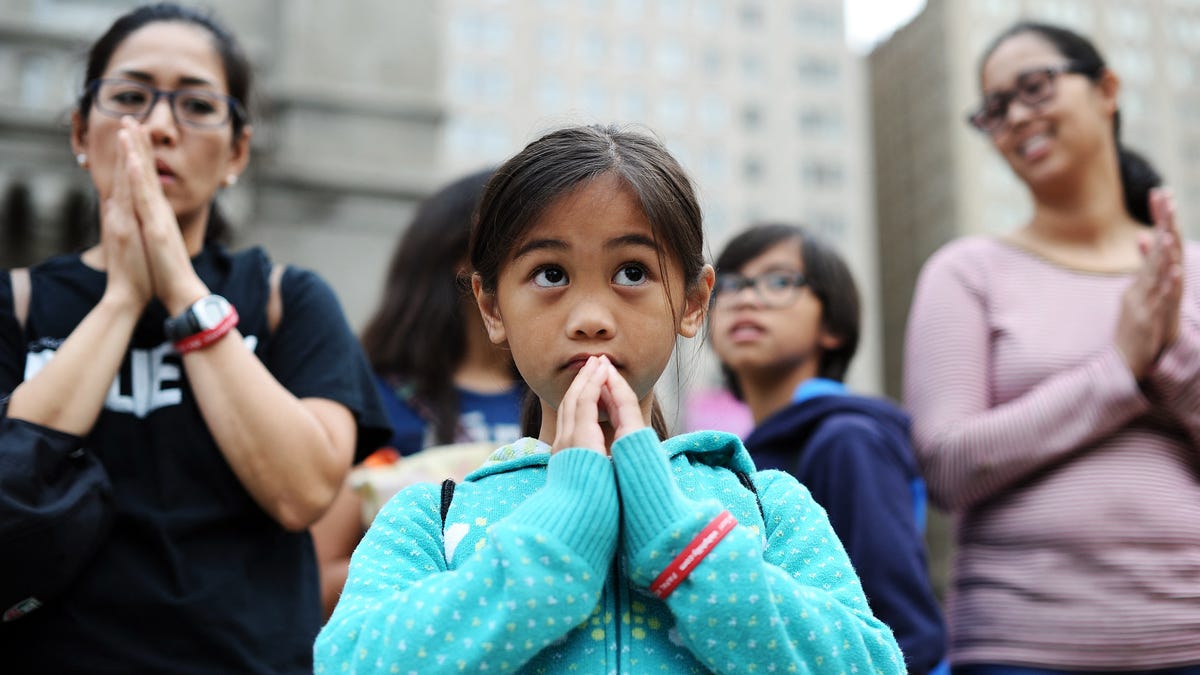As a Nicaraguan-born girl growing up in Miami, Prisca Dorcas Mojica Rodríguez remembers going to church five times a week. Her father was a pastor, and their fundamentalist evangelical faith taught that a woman’s role was to serve her husband.
At the same time, Mojica Rodríguez saw how essential women were in keeping the pews filled and the church running. Ultimately, dismayed by the subservient role of women and the church’s harsh restrictions on girls, she would leave her faith – and her husband – in her late 20s.
“Women are less inclined to be involved with churches that don’t want us speaking up, that don’t want us to be smart,” said Mojica Rodríguez, who went on to earn a master’s degree in divinity. “We’re like the mules of the church – that’s what it feels like.”
Though the Nashville-based author and activist is now 39, her experience reflects a growing and, for churches, a potentially worrisome trend of young women eschewing religion. Their pace of departure has overtaken men, recent studies show, reversing patterns of previous generations.



When one of my buddies got married, his wife wanted it done at her family church back home even though neither are currently religious.
Part of the ceremony included her to swear to always obey any request her husband makes, no matter what.
And not in like an offhand mention thing during vows that gets glossed over.
It was a separate part where she had to explicitly agree to do anything her husband says.
He stills pulls it out as a joke when they disagree over stupid shit.
I have no idea why it’s taken so long for women to leave the Abrahmic religions.
Childhood indoctrination is a very powerful thing to be able to break away from. When you’re told every day to do exactly what the pastor says Jesus wants you to do from the point that you are able to understand the “do this or else” concept, it’s hard to shake that off even if you feel it’s wrong.
Yup. It’s very difficult, it can even be deeply traumatizing for some. You can get shunned by your own family. You can get cast out from the only community you know.
Also family and peer pressure in many instances.
It’s not only you are told every day, it is like that when you are born into it. It has always been like that, it bacomes the cornerstone of what you will go from.
Very hard to break I imagine.
You are born into a family that practices that religion. The people closest to you insist the religion is true. Every week they take you to a stage performance where the audience all insists the religion is true and they performers not only insist it’s true but are treated as a great authority on the truth of the religion.
You are put into youth groups and formal education programs where additional authorities instill in you the constant insistence that the religion is true. You join the local Boy Scout troop and they all insist it’s true. You go to a school run by the church. The entire class of students collectively insist the religion is true.
Some religions, like the Jehovah’s Witnesses, send church members and their families to canvas neighborhoods, knocking on doors, delivering the “good news,” failing to convince anyone, and coming to the conclusion over time that the rest of the world just doesn’t want to see the truth that you’ve become convinced of because literally everyone in your life constantly reaffirms that the religion is true.
The most successful indoctrination runs deep and is pervasive.
Yup, and in my experience, it’s strongest in Catholics. Like my wife hasn’t been to church or practiced anything in probably 20 years, but a lot of the tenets are deeply rooted in her, most notably guilt (and guilting other people, especially her family)
Probably why Catholic girls are some of the most wacko and most fun in a particular regard. All that repressed emotion.
holy fucking stereotypes Batman…
It ain’t stereotyping, it’s experienced-based analysis. Catholic girls (from around the world, not just the US, nor of a particular ethnicity or nationality) tend to operate similarly in the regards I mentioned. Not to say it’s a bad thing either (quite the opposite on that last bit), it’s just apparent that their Catholic upbringing had deeply rooted effects on some behavioral patterns that were common amongst those girls I’ve known.
Leaving a religion often results in shunning and the loss of ones entire social network; for many vulnerable people (like women caught in a patriarchal cult) this is a cost too high to bear.
It’s a culture cultivated specifically to make it difficult to leave.
This is a feature of all cults, not just the well known ones that call themselves “religion”